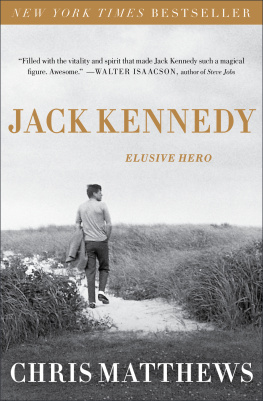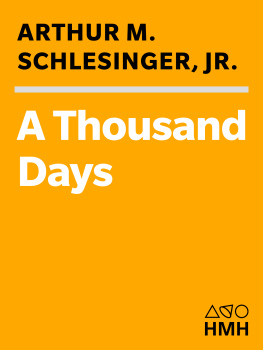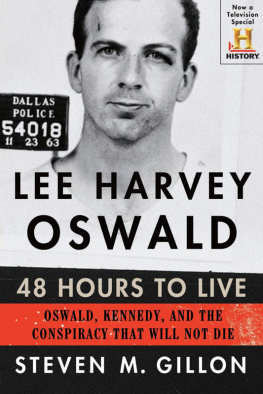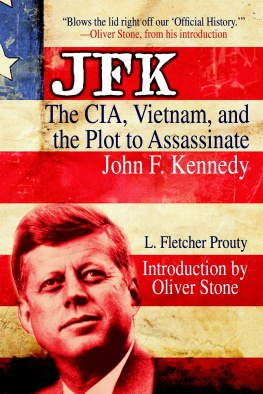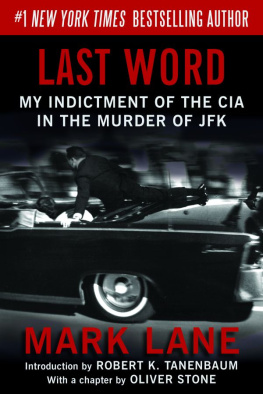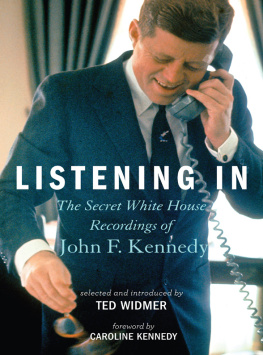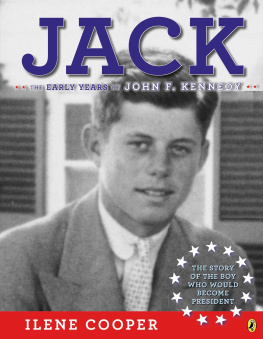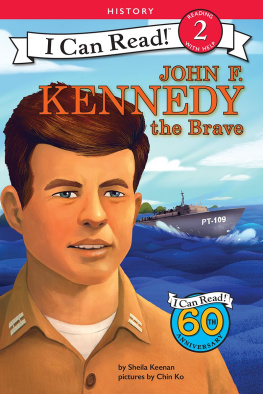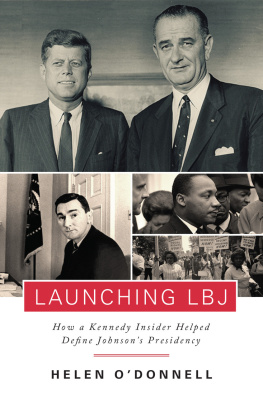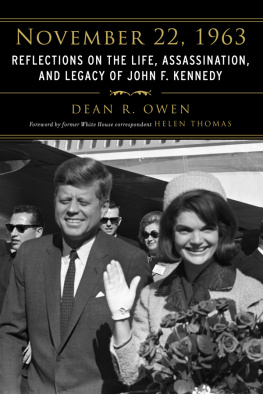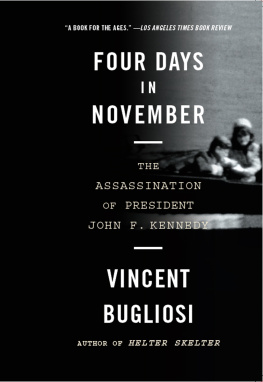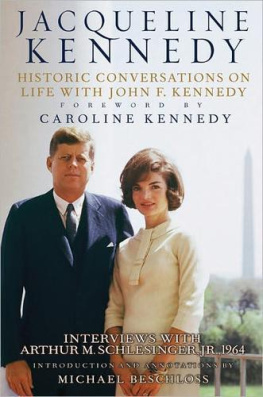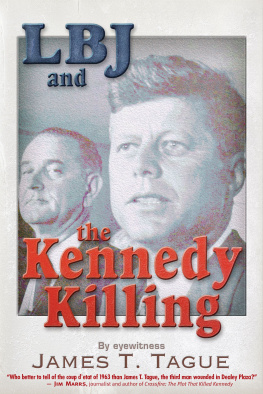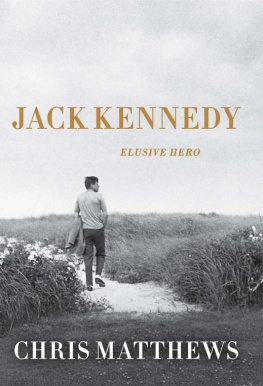Praise for Jack Kennedy: Elusive Hero
In his engaging new biography... Matthews, who has a deep knowledge of American political history, draws on conversations with numerous people... [offering] a valuable reminder of Kennedys skill at uniting toughness with inspirational leadership.
The New York Times Book Review
Matthews excels in capturing the tribalism of the Irish Catholic culture and experience Kennedy both absorbed and overcame as he made his way... [and] is at his best in describing the political dynamics.... The book conveys a mood of longing not only for Kennedy, but for the World War II generation.
The Washington Post
Matthews proves a compelling storyteller.... Jack Kennedy: Elusive Hero could be a worthy primer to introduce John F. Kennedy to curious members of a new generation.
The Boston Globe
Chris Matthews... has written a compelling blueprint for President Obamas reelection.
Dana Milbank, The Washington Post
[ Jack Kennedy ] is rich in thoughtful observations and insights.... Matthews has produced a valuable addition to the literature about the life and career of our 35th president.
The Christian Science Monitor
Matthewss stirring biography reveals Kennedy as a fighting prince never free from pain, never far from trouble, and never accepting the world he found.
Publishers Weekly
Although elusive is part of Matthews subtitle, the book makes Jack Kennedy seem less elusive even as we approach the half-century mark since his assassination.
The Newark Star-Ledger
When you can look behind the scenes, as Matthews does, you get a fuller picture than most ever see.
The Philadelphia Inquirer
What sets Matthews book apart from so many others is Matthews reliance on original sourcesstories he has been collecting for years from those who knew his subject personally.
Richmond Times-Dispatch
A fascinating look at an ultimately elusive man.
Booklist
[An] extraordinary and likable look at Kennedy.
Cincinnati CityBeat
Matthews curiosity and keen insights about people and politics pay great dividends.
Great Bend Post
Thank you for purchasing this Simon & Schuster eBook.
Join our mailing list and get updates on new releases, deals, bonus content and other great books from Simon & Schuster.
C LICK H ERE T O S IGN U P
or visit us online to sign up at
eBookNews.SimonandSchuster.com

CONTENTS
To Kathleen
At the peak of the Cold War, an American president saved his country and the world from a nuclear war. How did Jack Kennedy gain the cold detachment to navigate this perilous moment in history? What prepared him to be the hero we needed?
This is my attempt to explain the leader Jacqueline Kennedy called that unforgettable, elusive man.
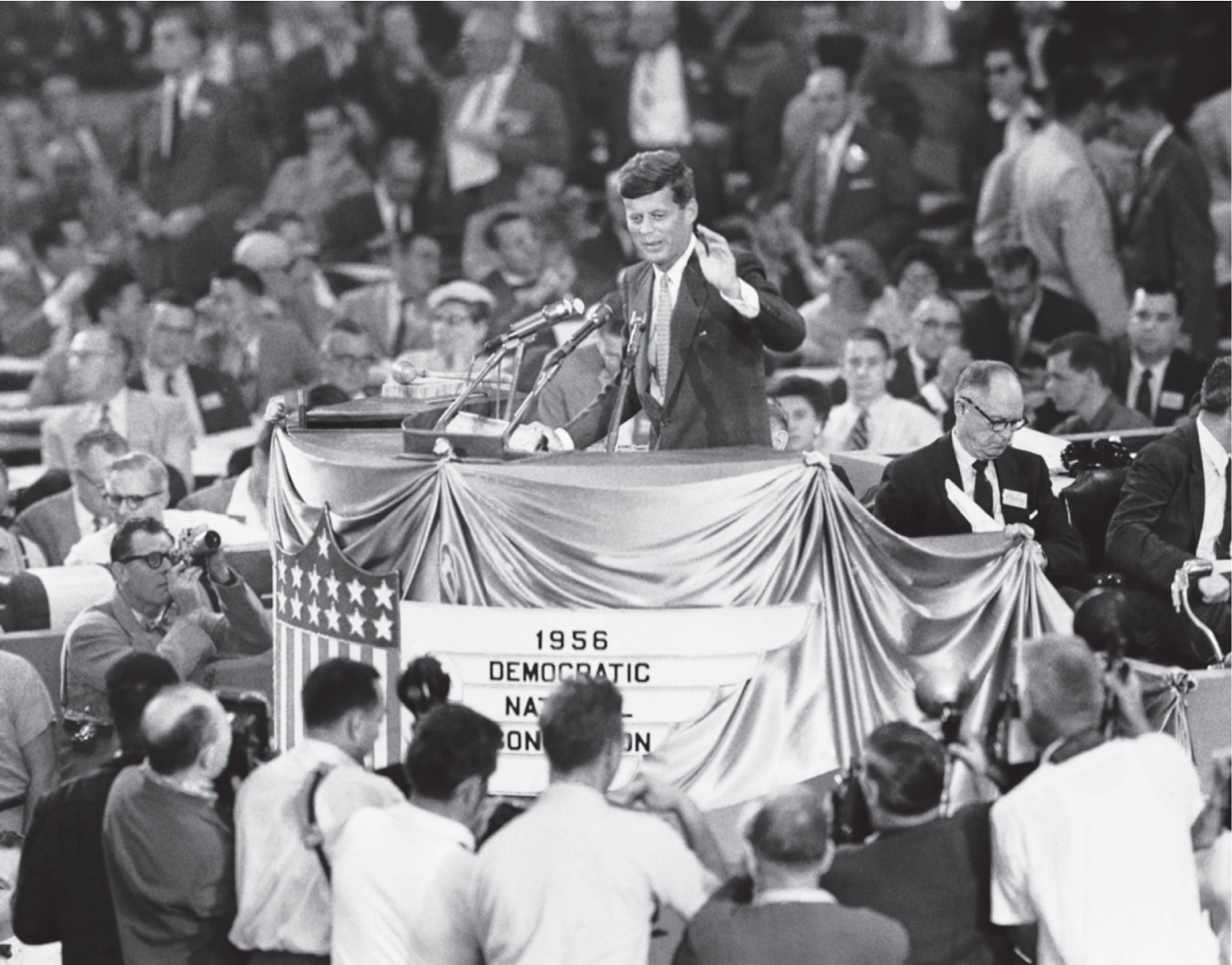
PREFACE
I grew up in a Republican family. My own political awakening began in 1952, when I was six. I remember riding the school bus to Maternity of the Blessed Virgin Mary. One of my classmates was a boy whose father was a Democratic committeeman in Somerton, our remote Philadelphia hamlet bordering Bucks County. I felt sorry for him because he was the only kid for Stevenson. It seemed everybody I knew was for Ike.
Back then, even though we kids were small, our souls were large. We had a sense of things we werent supposed to understand. I knew that Adlai Stevenson was an egghead. My father said he talked over the heads of people. There was distance between us and those like Stevenson. We were regular people.
My older brother, Bert, and I spent our days fighting World War II and the Korean War in our backyard. I knew General Eisenhower had fought in what Mom and Dad always called the war. It made him a hero. Once I was sitting with Dad at a movie theater when a newsreel came on showing Eisenhower making his return from NATO in Europe, boarding an airplane and waving. I wondered whether he was president and turned to my right to ask my father this. No, came the answer, but he will be.
One outcome of World War II was to offer Catholics their opening to join the American mainstream. My mother once told us how the big milk company in Philadelphia used to ask for religion on its job application. The correct answer, she explained, was any one of the Protestant denominations. Catholic meant you didnt get the job. What I know for sure is that in the early 1950s we were still making an effort to fit in.
Looking back, I cant count how many times we first and second graders found ourselves marching up and down Bustleton Avenue in front of Maternity carrying little flags. I dont even know which holidays we were celebrating; maybe none. But there we were, miniGeorge M. Cohans offering up some endless display of our American regularness. All this actually happened, this postwar assimilation of Catholics, and its a key part of the story Im telling.
Those were the early boomer years. And a boom it was. We had a hundred kids in our first grade, more than would fit in a classroom, so they had to put us in the auditorium.
I remember an afternoon in 1956 thats hard to believe now. Whats strange about it to me is the way it marks a before-and-after moment in time. History changed. It was July, and we were listening to the radio in our two-tone 54 Chevy Bel Air.
It was broadcasting the balloting from the Democratic Convention in Chicago. The fight to become the partys vice-presidential candidate was on between Kefauvera name I knew from listening to the news, just as I knew the name Nixonand now, out of nowhere, this candidate named Kennedy. Wed never heard of him. It was an Irish name.
So, because he was a known quantityKefauver, a brand nameI was happy when the Tennessee senator won, finally, on the second ballot. The name I knew had beaten the other name. Isnt that how most voting seems to be, voting for the name you recognize, rooting for its victory, and all the time having no real idea who the person is?
Yet, looking back on this event, that Democratic National Convention of over a half-century ago, an image from it remains frozen in my minds eye. The truth is, its a picture that entered my consciousness and stayed there. What I still see, as clearly as if it were yesterday, is that giant hall with its thousands of cheering delegates, its chaos then suddenly punctuated by the appearance onstage of a young stranger. It was John F. Kennedy, who had just lost the nomination to Estes Kefauver; swiftly he came through the crowd and up to the podium in order to ask that his opponents victory be made by acclamation. He was releasing his delegates and requesting unity, and, in making this important gesture, he seemed both confident and gracious. It was the first look the country at large had had of him, a figure we would come to know so well, one who would soon mean so much to us, to me.
I was ten at the time.
I was becoming increasingly obsessed with politics. Two years later, on the midterm election night in 1958, I was backing the GOP candidates, among them Hugh Scott, who won his fight that night to be junior senator from Pennsylvania in an upset. In New York, the Republican candidate, Nelson Rockefeller, defeated the Democrat Averell Harriman, the incumbent governor. My father, a court reporter working for the city of Philadelphia, offered a kind remark about the patrician Harriman, saying he looked sad. It was one of those rare, memorable times when Dad would step out of his workaday world to make such a comment, or to quote from a poem hed learned in school.
Next page
